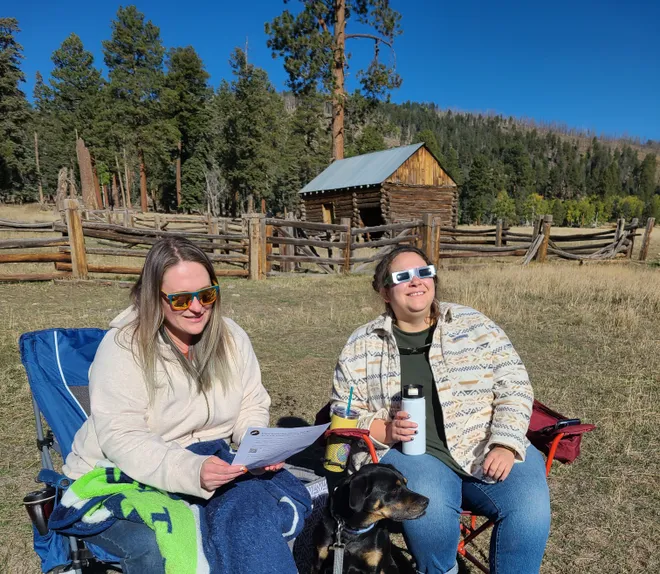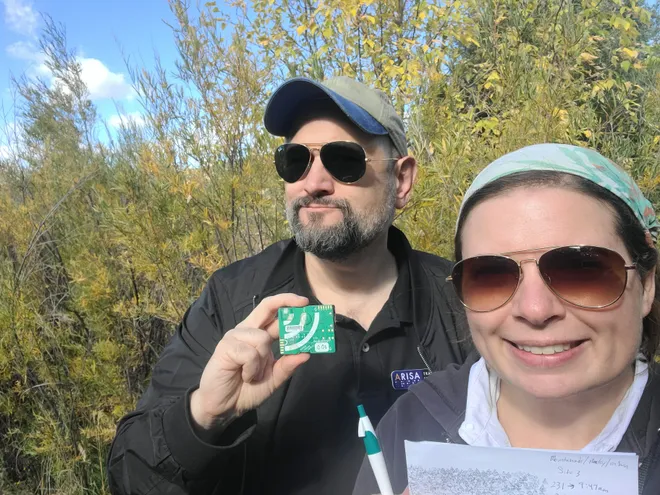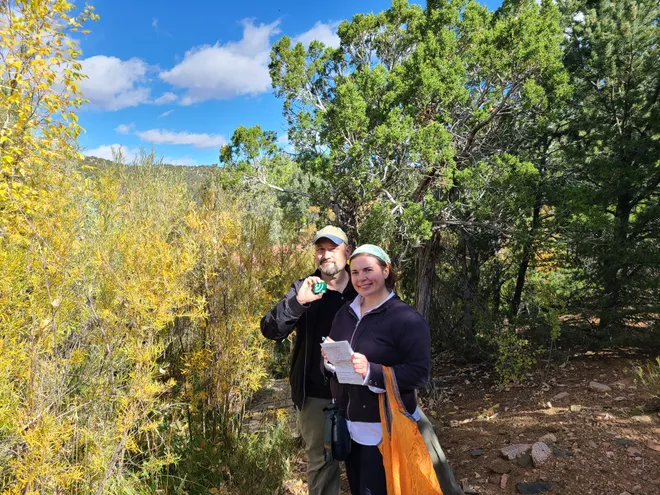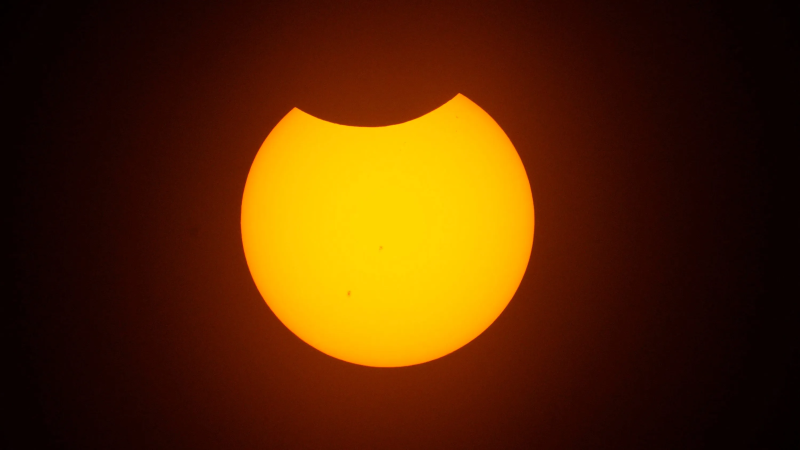An inclusive eclipse: How people with disabilities can experience the celestial moment
Chris Danielson remembered how lab periods inevitably went for him in school.
"If we did an experiment, I was always the note-taker," he said. "I was never allowed to touch anything, to use the knife in dissections or touch anything in chemistry."
Today, the 52-year-old is the spokesperson for the National Foundation for the Blind. He recalled how "growing up, we were told STEM was not really for us."
That idea is changing. The biggest astronomical event of the year − an April 8 total solar eclipse that will arc across a swath of the United States from Texas to Maine − will be a more inclusive spectacle because of a combination of technology and awareness.
"Nature is a shared human experience," disability advocate Nash Dunn says.

Eclipse totality means inclusivity in Indiana
Dunn, president of Knox County Association for Remarkable Citizens (KCARC), said the southwest Indiana nonprofit, which offers services to children and adults with disabilities, has been preparing for the eclipse along with the rest of the community. The area is within the eclipse's path of totality.
Like a lot of other eclipse events taking place across the country, Community in Totality will include a DJ, food vendors, games and arts and crafts activities. But the afternoon-long event centers around helping people with physical, developmental and cognitive disabilities such as cerebral palsy, Down syndrome and autism view and participate in the eclipse.
LightSound boxes, which sync musical tones and other sounds with the changing shadows and light of the eclipse, can help people with visual impairment or blindness track the movements of the sun and moon, something Dunn described as akin to the sounds depicted in the 1968 film "2001: A Space Odyssey."
"We're playing around with different materials, too," Dunn said. "A lot of folks we serve have sensory issues or they just can't wear glasses," a potentially huge problem that could prevent people from safely viewing the eclipse. Organizers are working on accommodations, brainstorming ideas like a canopy that would protect their eyesight while still providing a vantage point to view the eclipse.
Dunn said KCARC has also ramped up eclipse-related education "so everyone understands what it is and what it means, so they can understand what the event is and why it’s important, and how they can be part of it."
The community has always been very supportive of KCARC's work, Dunn said, ever since the organization was founded in 1969 by parents who didn't want their disabled children to be institutionalized but also needed services to keep them engaged and included. KCARC offers an array of services and employment opportunities.
"A vibrant, healthy community is created by every person in it," he said. "Everyone in this community is working to make sure the eclipse is positively impactful for all of us."

Citizen scientists across the country
The folks at ARISA Lab are busy, said co-founder and chief scientist Henry "Trae" Winter III.
"We're three weeks out from a deadline we cannot change," he said, and working to make sure as many people as possible can take part in the Eclipse Soundscapes Project, a joint effort with NASA, the National Foundation for the Blind and scientists, educators and a small army of volunteers across the country.
The goal: To see how a total solar eclipse affects wildlife, collecting multisensory recordings of how birds, animals and insects react to the moments of light, dark and every shade in between.
Winter said he grew up poor, thinking there was no place for him in disciplines such as astronomy and astrophysics that required years of education. That helped inform his desire, along with ARISA co-founder MaryKay Severino, to make science more open and accessible to all. ARISA stands for Advanced Research in Inclusion & STEAM Accessibility.
Realizing he could make his way in science, the astrophysicist said, "was very powerful."

"Science should be for everyone," he said. "We want people to be able to do the science, working with scientists and with each other."
ARISA has put accessibility first, he said: "It's not that hard and it doesn't have to be expensive. ... We don't make things for people who are low-vision and blind; we make them with people who are low-vision and blind."
There are a host of resources on the Eclipse Soundscapes Project website, including educational materials – "Made by teachers," Winter said, "not scientists like me, because we know scientists can't make good lesson plans"; links to participating organizations; maps; and even DIY kits for people to join the effort.

'Sight is only one of our senses'
Annette Lutz, who is president of the Capital Chapter of the National Federation of the Blind of Ohio, said she's excited about the project and experiencing her first total eclipse. She'll be outside on her deck in Columbus with her daughter and her rescue dog, Teddy. She wants to listen for the sounds of birds, insects and other living creatures. She wants to feel the changes in temperature, the shifts in the wind, the way "day will become night, even if it's just for a couple of minutes."
"I am space-nerdy person," she said. "So I'm fascinated by this. A lot of blind people are discouraged from science, and we really try to tell folks, you do not have to see to be involved in science. There are plenty of blind scientists: chemists, physicists, astrophysicists. They do it because this is their passion. Blindness shouldn't be a barrier to that."
She's self-employed and grateful for the flexibility that affords, and she wants people to understand that the eclipse will be a multi-sensory phenomenon.
"Sight is only one of our senses," she said. "We can fully enjoy this."
Contact Phaedra Trethan by email at ptrethan@usatoday.com, on X (formerly Twitter) @wordsbyphaedra, or on Threads @by_phaedra.
Disclaimer: The copyright of this article belongs to the original author. Reposting this article is solely for the purpose of information dissemination and does not constitute any investment advice. If there is any infringement, please contact us immediately. We will make corrections or deletions as necessary. Thank you.




